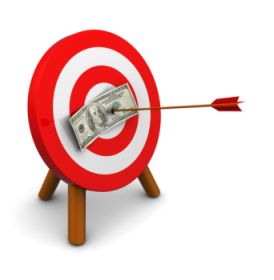Fund Management
Where Investment Alpha Is Lost And Found

This article identifies factors most commonly associated with alpha generation and destruction by equity fund managers. It gets to the heart of the debate about how or whether active fund management can add value, and if it is worth the money.
The end of a decade-long bull market in equities, followed by
this year’s coronavirus-induced declines, is an auspicious time
to review a long-standing quest: where do above-market returns –
“alpha” – come from? How can managers find consistent ways to
achieve superior returns? A firm that takes a look at this is
Essentia
Analytics and we have a guest op-ed article from Chris
Woodcock, who leads the research and product teams. This news
service also recently spoke to Woodcock’s colleague, Clare Flynn
Levy, the chief executive, who explained why Woodcock’s insights
are so important: “Every fund manager has behavioural patterns
related to whether they generate alpha or not. If you don’t look
at these, you are at a disadvantage. There are patterns and it is
possible to identify them.”
WealthBriefing is pleased to share these insights and invite
responses. The usual editorial disclaimers apply, and readers are
welcome to jump into debate. Email tom.burroughes@wealthbriefing.com
and jackie.bennion@clearviewpublishing.com
Managers who generate enough alpha to beat the returns of low-fee
index funds by more than their own fees demonstrate that active
fund management can - and does, in these circumstances -
represent a better value than passive index investing.
But like the holy grail, alpha is elusive. It is difficult to
generate in the first place, and even more challenging to
reliably replicate. In fact, while it’s easy to measure a
portfolio’s overall alpha, no one has systematically identified
where in the manager’s decision-making process that alpha is
actually originating.
The source of alpha - the single most important determinant of
successful active portfolio management - has been shrouded in
mystery.
Until now.
The Essentia research team has concluded a three-month
examination of the origins of portfolio alpha - where in the
myriad decisions made and actions taken by portfolio managers it
tends to be generated or destroyed.
Our results were twofold. First, we found very few common sources
of alpha across portfolios. With a handful of exceptions - which
we’ll discuss below - most portfolios have their own unique
fingerprint of what leads to the alpha they create (or lose).
Second, and most importantly: in 100 per cent of the portfolios
we studied, we identified at least one factor - or 'categorizer',
in our terminology - that significantly impacted alpha, for
better or for worse. This has profound implications for all
active portfolio managers. Our work shows that it is possible for
managers to identify where in their decision-making process they
tend to create or destroy alpha - and once that is known, the
door is open for them to expand or enhance what adds alpha, and
correct what diminishes it.
Our study analysed 60 portfolios over 14 years and identified
distinct areas of manager decision-making directly tied to the
alpha generated (or lost) within each portfolio. We tracked 24
categorizers - ranging from equity sector to holding period to
decision day of the week - across six broad investment decision
categories, or skills: stock picking, size adjusting, entry
timing, exit timing, scaling in and scaling out.

Sources of alpha were found in varying degrees across six key investment skills among the portfolios we analysed. This chart shows the percentage of the portfolios in our study that contained at least one significant factor within a given skill.
In all 60 portfolios we analysed, we found at least one factor
that was significantly associated with the generation of alpha.
Very few of those were common across the portfolios, but we did
find that for a majority of managers (63 per cent), alpha was
associated with at least one factor within stock picking, most
notably:
-- Conviction level: A significant number of managers
demonstrated skill in picking stocks where they had strong
conviction: namely, those in their top quintile of positions by
maximum money invested. By contrast, a significant number of
managers showed negative skill in the middle quintile of
positions on this metric. This reinforces what we see in managers
every day: positions that are neither proactively large nor small
often lead to alpha destruction - it’s a common “alpha leak.” In
our analysis, these lower-conviction stock picks tended to
destroy alpha at an average rate of 2.1 per cent per investment.
-- Exit price momentum: For 37 per cent of managers in our
sample, exit price momentum was strongly correlated with stock
picking alpha. On average, we found that exiting stocks into
negative momentum (a falling price, for a long position, or a
rising price, for a short position) destroyed 6.2 per cent of
alpha at the portfolio level, per investment. In contrast, stocks
exited into positive momentum added 5.1 per cent of alpha at the
portfolio level before the manager closed the position. So these
managers had a marked tendency to finish a profitable episode on
a high note, and an unprofitable one on a low note.
-- Open vs. closed positions: Portfolios often showed a
stark difference between alpha generated by stock picking
decisions in open positions vs closed ones: on average, we found
that open positions were contributing 13 per cent of alpha at the
portfolio level at the time of the analysis - while closed
positions had generated -4.7 per cent of alpha. While more
investigation is required to interpret this result, we find this
particularly interesting in light of our work into the lifecycle
of alpha: in some managers it may be evidence of the “round
tripper” effect (in which managers hold their stocks too long and
sell only after all alpha has been exhausted) we identified in
that research. (Alternatively, in others, it could be a
successful inversion of the disposition effect.)
-- Holding period: For a subset of portfolios (20 per cent),
holding period was an important variable in alpha generation. On
average, these fund managers pick stocks that rise by 7.5 per
cent in their longest-held quintile of positions. This far
outperforms other holding period quintiles, which all had
negative average returns. Except, that is, for the very
shortest-held 20 per cent of positions, where picks generated 1.7
per cent of alpha! Again, there are several possible
interpretations of these results. That middle 60 per cent of
positions, for instance, may simply represent the positions that
didn’t work out; an acceptable cost of business. Our experience,
however, tells us that this middle ground is a source of lost
alpha, and that more often than not, managers had the opportunity
to take remedial action sooner.
Our hypothesis going into this project was that we were going to
find a short list of “alpha leaks” that active managers in
general tend to suffer. But that wasn’t the case. We found,
instead, a wide array of factors that affect alpha both
positively and negatively, and very little consistency across the
portfolios.
But we were able to identify sources of alpha generation and/or
destruction in all portfolios - within a set of factors that are
consistent, identifiable and measurable in every case. We think
these are incredibly encouraging findings for active managers;
once identified in their own portfolio, these can be corrected
and optimised, with potentially significant benefits to their
returns.
About the author
Chris Woodcock leads the research and product teams for Essentia
Analytics. Prior to joining Essentia, Chris was a technology
analyst at GAM Investment Management and a hedge fund analyst at
GAM Multi Manager in London. Before his career in financial
services, Chris was a professional footballer with Newcastle
United.